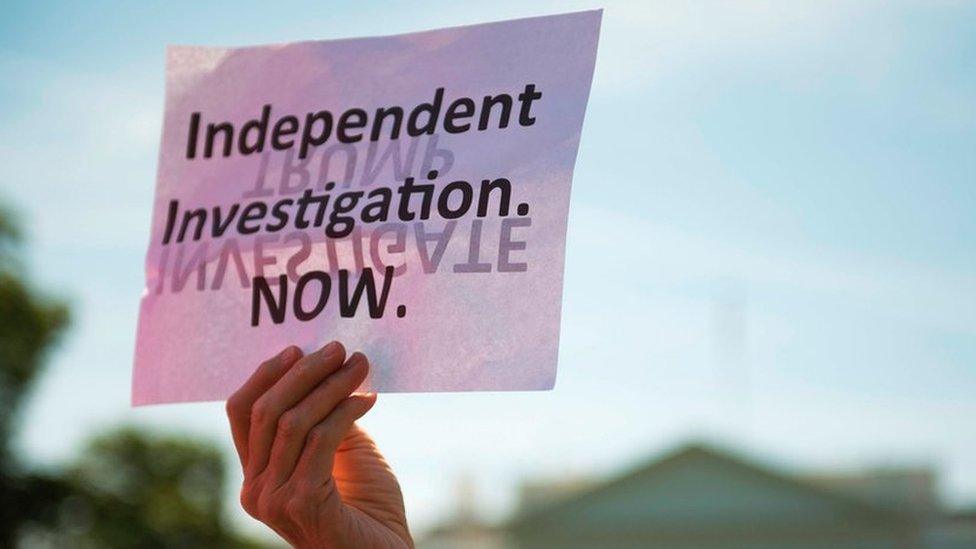Trump Russia: FBI probed whether Trump was working for Moscow - NYT
- Published
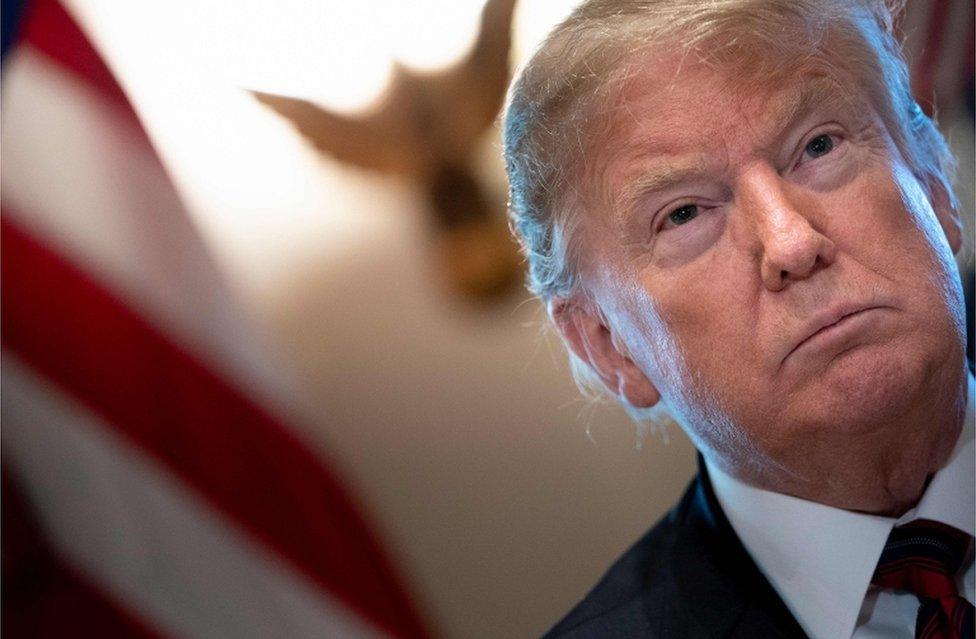
The FBI became concerned after Mr Trump fired FBI director James Comey, the Times reports
The White House has condemned a New York Times report that the FBI opened an inquiry into whether President Trump was secretly working for Russia.
Law enforcement officials became concerned by Mr Trump's behaviour in May 2017, when he sacked FBI director James Comey, the paper says, external.
The investigation reportedly examined whether Mr Trump was a national security threat.
Mr Trump said there was no reason and no proof for setting up such a probe.
Allow X content?
This article contains content provided by X. We ask for your permission before anything is loaded, as they may be using cookies and other technologies. You may want to read X’s cookie policy, external and privacy policy, external before accepting. To view this content choose ‘accept and continue’.

"This is absurd," White House press secretary Sarah Huckabee Sanders said.
"James Comey was fired because he's a disgraced partisan hack, and his deputy Andrew McCabe, who was in charge at the time, is a known liar fired by the FBI," she said in a statement.
"Unlike President Obama, who let Russia and other foreign adversaries push America around, President Trump has actually been tough on Russia."
In 2016, US intelligence agencies concluded that Russia had launched cyber-attacks and planted fake news stories on social media in a bid to boost Donald Trump and damage his rival for the presidency, Hillary Clinton.
What did the FBI supposedly investigate?
The New York Times report said the FBI investigation was a joint counterintelligence and criminal probe.
The counterintelligence part sought to establish whether Mr Trump was knowingly aiding the Kremlin against America's interests, or "had unwittingly fallen under Moscow's influence".
The criminal aspect concerned the president's sacking of Mr Comey, and whether it was an obstruction of justice.
The ex-FBI director told a congressional hearing that Mr Trump told him "I expect loyalty," and pressured him to end an inquiry into the president's former national security adviser, Michael Flynn.
Flynn pleaded guilty in December 2017 to lying about his contacts with the Russian ambassador to the US.
What happened to the inquiry?
The paper says the FBI investigation was rolled into the work of special counsel Robert Mueller, who is leading an inquiry into whether Mr Trump's campaign and transition teams colluded with Moscow to influence the 2016 US election.
Mr Mueller was appointed within days of Mr Comey's firing.
Watch the full UK exclusive Newsnight interview with ex-FBI chief James Comey
Mr Trump has denied any complicity with Russia, and called the Mueller probe "the greatest political witch hunt in history".
Nonetheless, the inquiry has put some of the president's closest associates in the dock.
His former personal lawyer Michael Cohen was sentenced to three years in prison for campaign finance and fraud crimes while his campaign chief Paul Manafort was convicted of financial fraud.


The Times said it was not clear if the counterintelligence part of the FBI inquiry was still being pursued.
The paper's report cited unnamed former law enforcement officials, "others familiar with the investigation," and the congressional testimony of former FBI general counsel James. A Baker.
- Published24 July 2019
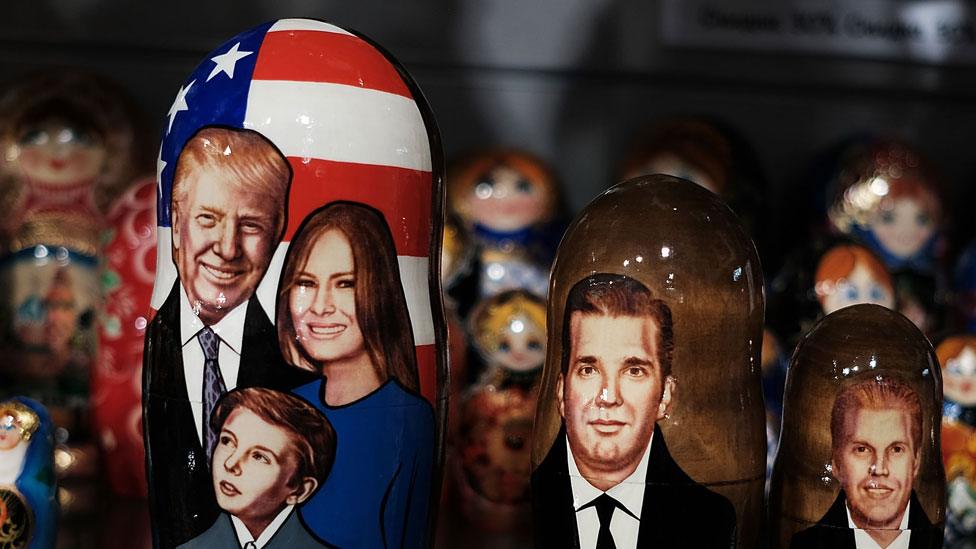
- Published15 June 2018
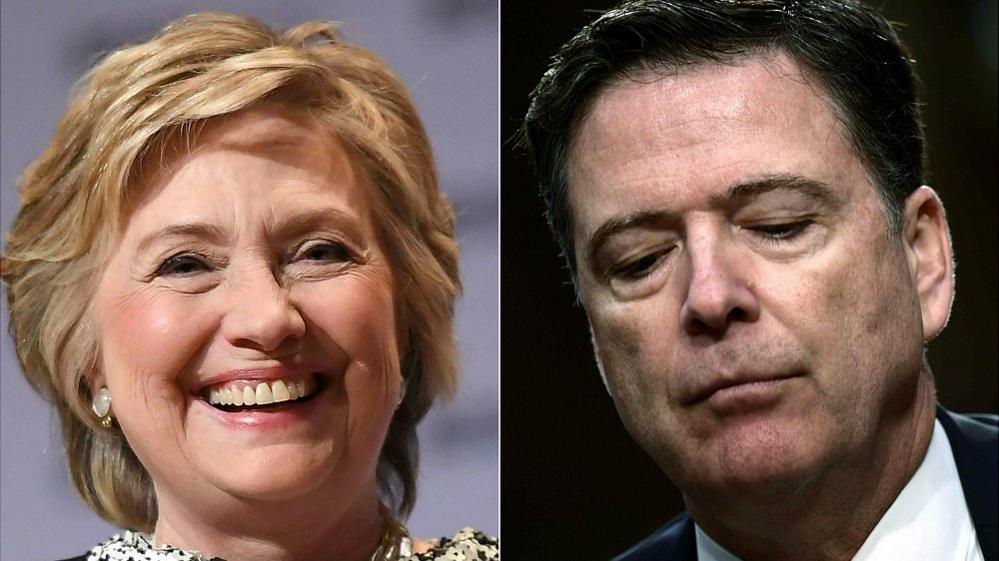
- Published8 June 2017
- Published10 May 2017
- Published20 April 2018
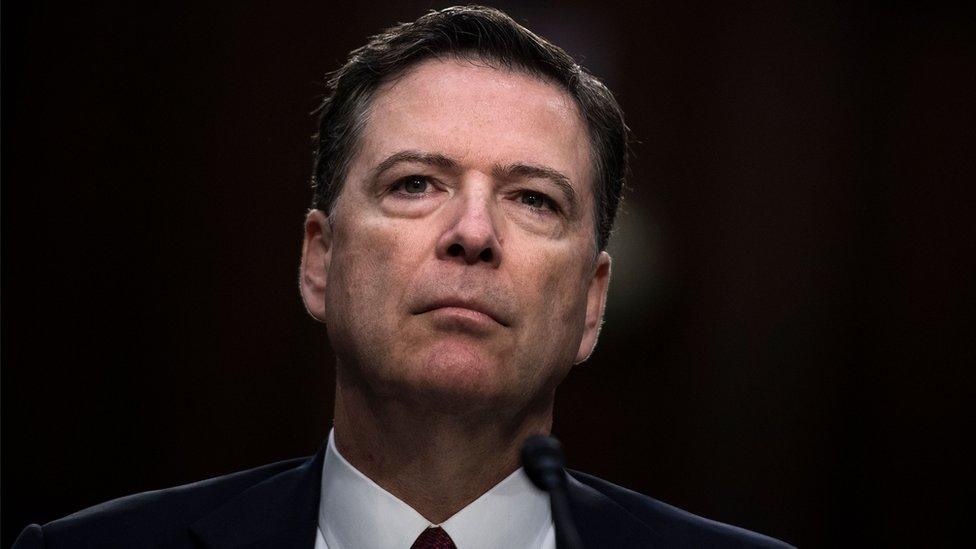
- Published19 April 2018
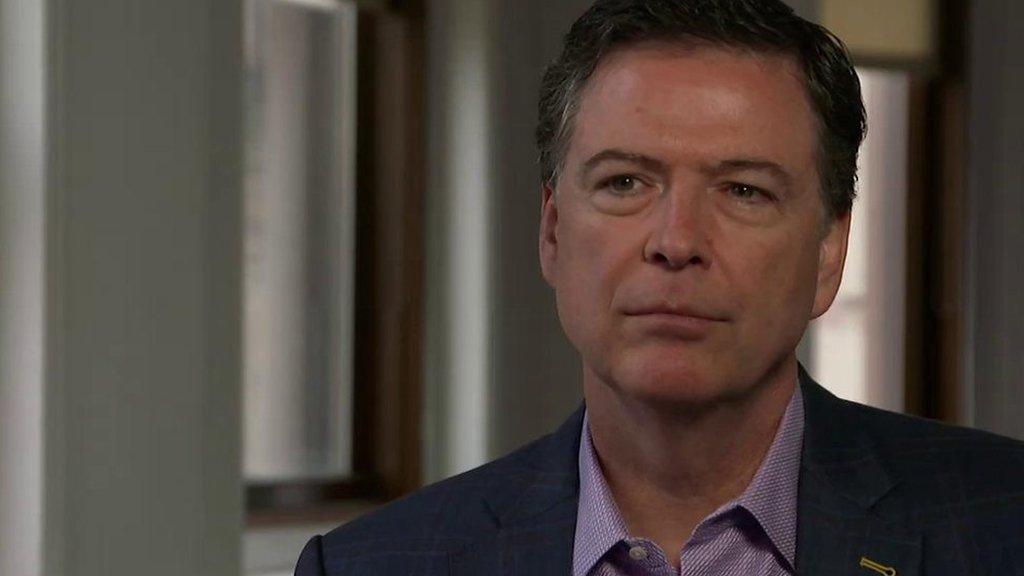
- Published24 July 2019
